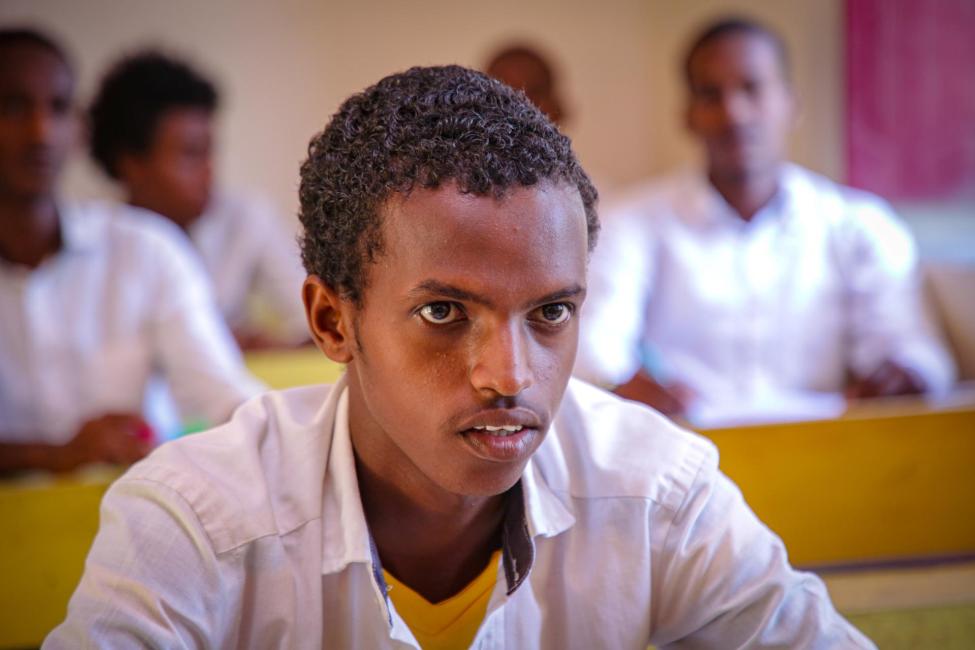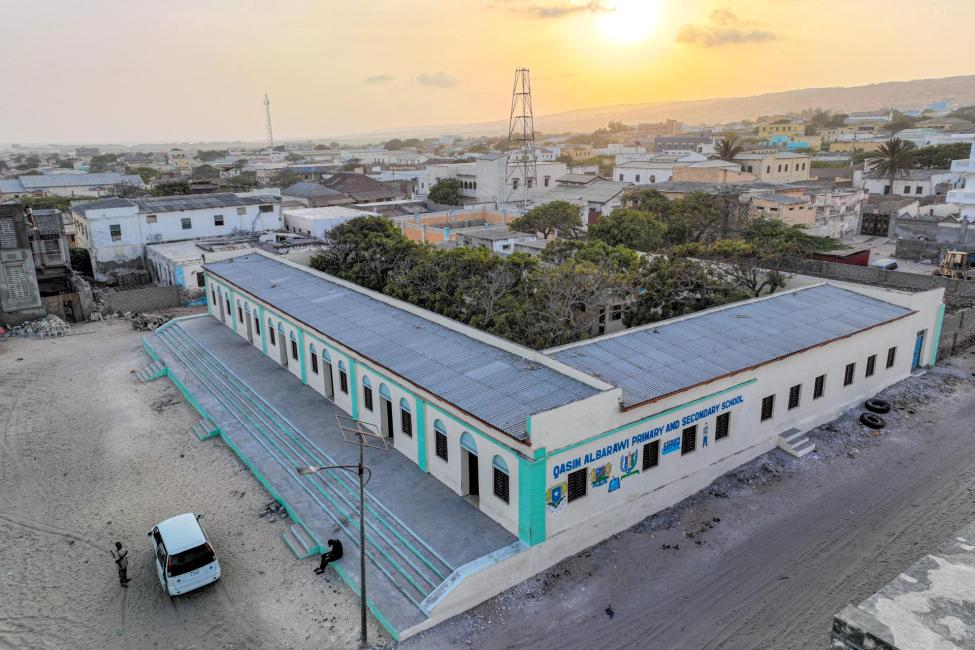-
Who We Are
WHO WE AREThe International Organization for Migration (IOM) is part of the United Nations System as the leading inter-governmental organization promoting since 1951 humane and orderly migration for the benefit of all, with 175 member states and a presence in over 100 countries. IOM has had a presence in Somalia since 2006.
About
About
IOM Global
IOM Global
-
OUR WORK
Our WorkAs the leading inter-governmental organization promoting since 1951 humane and orderly migration, IOM plays a key role to support the achievement of the 2030 Agenda through different areas of intervention that connect both humanitarian assistance and sustainable development. Across Somalia, IOM facilitates transition of Internally Displaced Persons (IDPs) and refugees towards durable solutions by providing services and support for Migrants and Mobile Populations.
Cross-cutting (Global)
Cross-cutting (Global)
- Data and Resources
- Take Action
- 2030 Agenda
Lower Shabelle, Somalia - Broken doors and windows, leaking roofs, empty classrooms with no desks and chairs, and limited access to water, characterized the Qasim Al-Barawi school in Wadajir village, Lower Shabelle District of South West State, Somalia. The dilapidated infrastructure and unsanitary facilities rendered the school uninhabitable, forcing Abdullah Ahmed and several other students to make the difficult choice of abandoning their education last year. To make matters worse, many parents forfeited the enrolment of their children due to its appalling condition.
Fifteen-year-old Abdullah and numerous other children in hard-to-reach areas of Somalia have found a glimmer of hope with the Stabilization Through Education Program (STEP). After years of conflict-related disruptions, this initiative has ensured access to basic education for thousands of children, including Abdullah, who is now back in school. Previously under Al-Shabaab (AS) rule, Wadajir village was liberated by the government in 2014. During that period, children were vulnerable targets of forced recruitment by AS, who provided economic incentives and other distractions.
Through the program, 11 classrooms were rehabilitated and fully equipped, creating a safe learning environment for the students. Gender-segregated latrines were constructed, giving the learners privacy and a sense of security. Students now have access to enough water for personal hygiene, and drinking water that is safe and clean due to the installation of a functional water pipeline system. Additionally, STEP has constructed other infrastructures in Qasim Al-Barawi, including septic tanks, a boundary wall, water pipelines, and administrative offices.
“This has provided children of Wadajir a second chance. We now have an equal chance to pursue education as other children in the country,” said Abdullah.
Thanks to these efforts, 311 new students enrolled in the school as of January 2023, significantly increasing student enrollment rates. Fifteen-year-old Abdullah is among those who have returned to school, now with a dream of becoming a doctor so he can help his society and family. He dreams of becoming a doctor so he can help his society and family.
The rehabilitation of Qasim Al-Barawi has played a critical role in community stabilization, as it is now described as the center for community activities and constitutes a critical social infrastructure in the fight against poverty and illiteracy. STEP’s efforts are supporting Somalia’s Education Sector Strategic plan (ESSP) for 2022-2026 and closely collaborating with USAID’s Bar ama Baro program, implemented by Creative Associates to deliver quality education services to marginalized children across the country.
Qasim Al Barawi was among the three main functioning schools in Barawe prior to STEP’s intervention. The school's rehabilitation is now minimizing the disruption of education activities in Barawe, ensuring children have a bright future and aspirations to build the country.
Thanks to STEP, students in the village are rebuilding their future, one classroom at a time.
This was made possible by the generous support of USAID Somalia.
For more information contact: IOM Somalia Communications Team: SMSom-Media@iom.int

